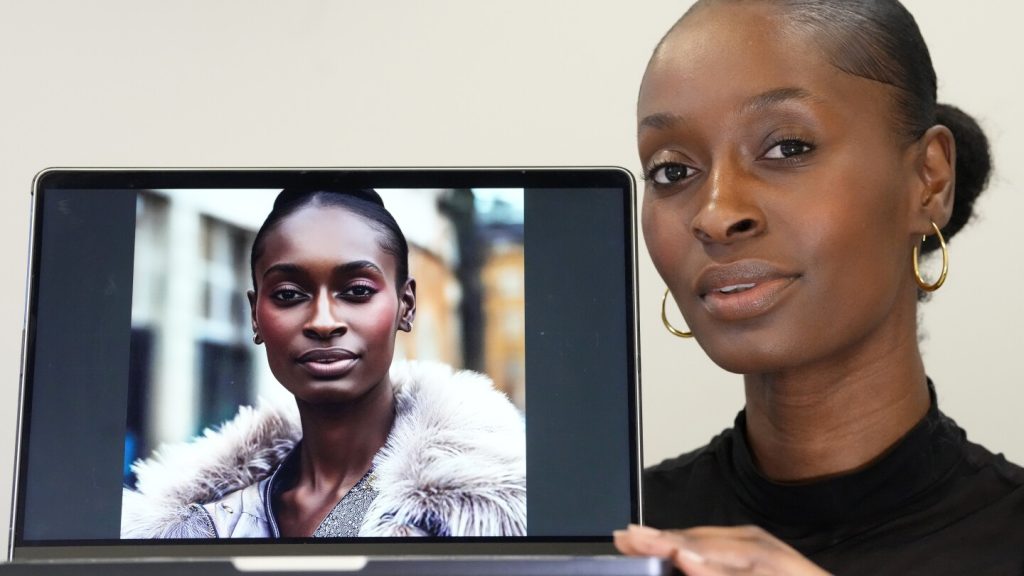AI-generated models are gaining popularity in the fashion industry, with companies like Levi Strauss & Co. testing out digital counterparts for live models. London-based model Alexsandrah has a virtual twin made possible by AI technology, which she says mirrors her even down to the baby hairs. While proponents argue that AI modeling allows for more diversity and tailored purchase decisions, critics express concerns that digital models could replace human models and other industry professionals. Some worry that companies may use AI models to fulfill diversity commitments without actually hiring diverse human models.
The use of AI in fashion modeling has potential implications for women of color in the industry. Sara Ziff, a former fashion model and founder of the Model Alliance, notes the lack of opportunities for people of color in the fashion industry. Data suggests that women, especially women of color, are more vulnerable to displacement due to the growing use of AI. Some iconic brands, like Levi Strauss & Co., have faced backlash for testing AI-generated models, but have clarified that their intention is not to replace live models or diversity commitments with AI technology.
While some retailers declined to comment on their use of AI models, companies like Lalaland.ai are finding a demand for this technology. Co-founder Michael Musandu created AI models to address the absence of clothing models who look like him. He believes AI modeling could supplement traditional photo shoots and enrich the shopping experience for consumers. Despite concerns about job displacement, Musandu argues that the technology is creating new opportunities in the industry. However, ethical concerns and transparency issues remain, particularly regarding the consent and compensation of models whose images are used to train AI systems.
London-based model Alexsandrah has worked with a U.K.-based digital modeling agency to create her own AI twin, distinguishing herself in the fashion industry. The agency’s CEO, Cameron Wilson, faced criticism for creating a Black computer-generated model named Shudu, but has since transformed the agency to promote opportunities for women of color. Critics have accused some companies of taking advantage of models by using their images to train AI systems without consent or compensation. Without proper regulations, it is up to companies to ensure transparency and ethical deployment of AI technology in fashion modeling.
The Model Alliance is advocating for legislation that would require clear consent and compensation for models whose digital replicas are created or used. Model Yve Edmond has expressed concerns about the lack of protections for models in the industry and instances where models have been misled about the use of their images for AI technology. While some industry professionals like Alexsandrah see potential for AI to open doors for models of color, others, like Edmond, advocate for compensating real human models who represent the diverse beauty of the world. As the fashion industry grapples with the ethical and practical implications of AI modeling, the balance between innovation and accountability remains a key issue for stakeholders.


